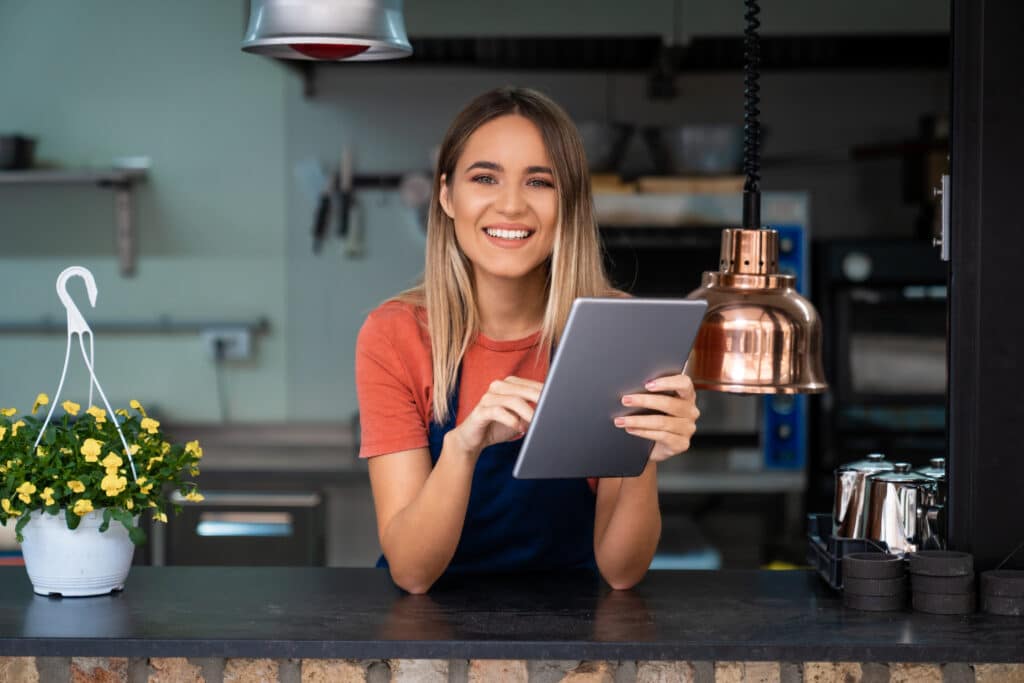This site uses cookies for analytics and to improve your experience. By clicking Accept, you consent to our use of cookies. Learn more in our privacy policy.
In an increasingly digital age, the restaurant industry has evolved rapidly, embracing technology to streamline operations and enhance the guest experience. One of the most significant transformations has been in the realm of restaurant reservations. Gone are the days of taking bookings over the phone or relying on walk-ins. Now, efficient reservation systems and apps are an integral part of the hospitality business, offering not only convenience but also rich features that help optimize operations. But what separates a mediocre system from a great one? Let’s delve into what makes a restaurant booking system truly exceptional.
A powerful restaurant reservation system does more than just book tables. It must provide a seamless experience for both the restaurant and the customer. Look for a system that integrates well with other management tools, such as point-of-sale systems and CRM platforms, to streamline operations across the board. Customization is another crucial factor; the system should allow you to set unique rules for seating arrangements, party sizes, and table availability to accommodate specific business needs.
Efficiency in managing walk-ins and no-shows is equally important. Modern systems should offer predictive analytics that help restaurants anticipate customer behavior, thereby reducing gaps in seating and optimizing turnover rates. Additionally, customer data is gold; a robust system will not only store customer preferences but also provide actionable insights into dining habits, allowing restaurateurs to enhance the guest experience and build loyalty.
Ease of use is essential. Both staff and customers should find the platform intuitive. A clunky interface or too many steps in the booking process can turn potential customers away. Lastly, scalability is vital—whether you’re a single location bistro or a multi-location restaurant group, the system should grow with you.

The restaurant booking app market is saturated with options, but some platforms have risen above the competition. Below is a detailed breakdown of the top 10 best restaurant booking apps, highlighting their key features and usability metrics.
Resy has become a household name among high-end and trendy restaurants. Its sleek design, real-time availability, and powerful data analytics make it a favored choice for restaurateurs. Resy allows users to seamlessly modify reservations and join waitlists, while restaurants can manage seating and gain insights into customer behaviors.
OpenTable remains one of the most trusted and widely used platforms globally. Its robust feature set includes not only table management but also marketing tools, loyalty programs, and in-depth customer data analytics. OpenTable’s vast network makes it particularly effective for attracting new customers while also maintaining a loyal clientele.
Yelp Guest Manager capitalizes on the extensive reach of Yelp’s review platform, giving restaurants access to a vast audience. This app allows restaurants to manage reservations while offering marketing advantages through Yelp’s established network. Guest Manager helps restaurants track customer preferences and provides insights based on previous guest behavior.
Tock is unique in its approach, focusing on prepaid reservations and ticket-based dining experiences. Ideal for fine dining and special events, Tock allows restaurants to reduce no-shows and better manage demand by requiring upfront payments for reservations. This system works particularly well for restaurants with limited seating or high-demand tasting menus.

Eat App is a versatile platform that has found a niche in the Middle East and North Africa. This cloud-based system offers powerful table management, guest tracking, and customer data analytics. With its user-friendly interface and ability to streamline operations, Eat App is suitable for restaurants of all sizes.
Eveve offers a high-performance platform designed for busy, high-volume restaurants. Known for its speed and reliability, Eveve is especially popular with independent restaurants that need a dependable system to manage a constant stream of customers. Its efficient design helps optimize seating turnover, reducing wait times and improving the dining experience.
Hostme is a cost-effective solution tailored for smaller and mid-sized restaurants. Its intuitive interface makes it easy to customize reservation settings, manage waitlists, and track guest preferences. Hostme is particularly valuable for restaurants looking for a reservation platform that won’t break the bank but still delivers essential features.
Part of the Toast POS ecosystem, Toast Tables offers seamless integration with a restaurant’s existing management system. From reservations to payment processing, this platform connects all aspects of restaurant operations. Its data-sharing capabilities make it a powerful tool for optimizing guest experience and operational efficiency.
Wiesly is a newer player in the market, known for its innovative use of AI to optimize seating and streamline reservations. This platform offers real-time updates and tracks guest history, ensuring that restaurants can provide personalized service while improving operational efficiency.
SevenRooms is a powerful reservation and guest management platform that integrates booking, marketing, and POS systems to enhance operational efficiency and personalize service. By collecting guest data, such as preferences and dining history, it enables targeted marketing and tailored experiences. With automated campaigns and real-time waitlist management, SevenRooms helps restaurants improve guest retention and streamline service, making it ideal for high-end and multi-location venues.
The transition from traditional phone-based reservations to AI-driven systems represents a monumental shift in the restaurant industry. AI reservation systems bring unparalleled efficiency, reducing the burden on staff and ensuring that tables are booked without the risk of human error. These platforms handle not only bookings but also real-time updates, cancellations, and waitlists, often autonomously. Furthermore, AI systems use data-driven algorithms to predict trends, optimize seating configurations, and even suggest marketing strategies based on customer behavior.
The future of restaurant reservations lies in AI. These systems not only streamline operations but also enhance the guest experience by offering seamless communication, personalized interactions, and faster service.
Read More:
See why more than 40,000 restaurants use Restaurant365
Restaurant reservation apps and booking systems have become essential in today’s competitive dining industry. Whether a restaurant needs a robust system for managing high-end, prepaid events or a flexible platform for handling walk-ins and waitlists, the right system can significantly boost operational efficiency and customer satisfaction. As AI and automation become more prevalent, the future of dining will continue to evolve, providing restaurants with even more sophisticated tools to enhance their service and grow their business.
Share this blog:
Restaurant365 brings together accounting, operations, scheduling, and more in a flexible platform—empowering restaurants to choose the solutions they need and scale with confidence.